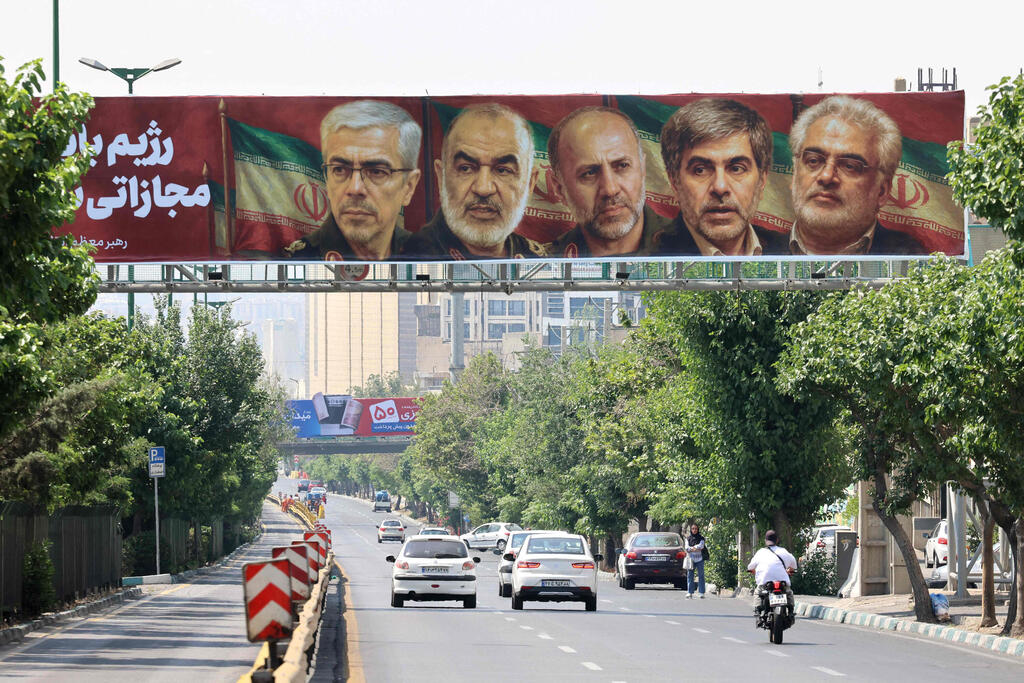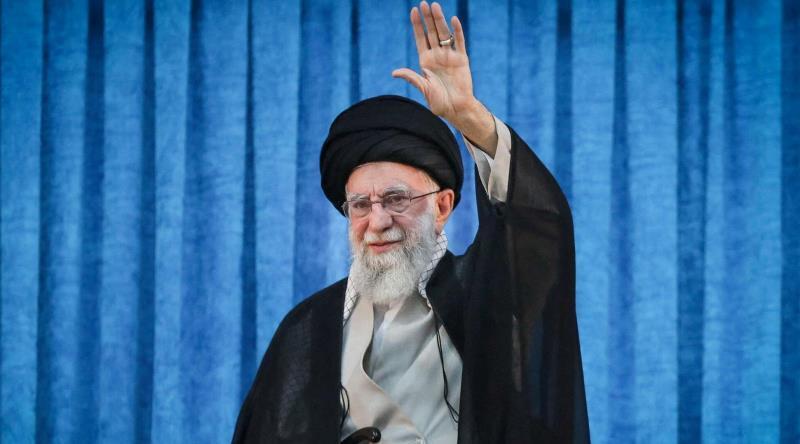After hours of shock and confusion following a devastating opening strike, Iran appeared to recover partially and launched hundreds of missiles toward Israel in a large-scale retaliation.
Since the start of the military campaign, Iran has focused on reassessing the situation and appointing replacements for senior commanders who were killed. Among the dead were the chief of staff of armed forces, the commander of the Islamic Revolutionary Guard Corps, the head of the emergency command and the IRGC air force commander. The delay in finding replacements highlighted the extent of the blow Iran suffered.
The hours-long delay in Iran’s response raised questions in both Israel and Iran. A pro-government Iranian commentator offered an explanation in the late afternoon, attributing the delay to intelligence infiltrations by “the enemy,” which required securing key figures and installations before retaliating. He acknowledged that the top command had been seriously impaired, necessitating a reorganization of Iran’s senior military leadership.
Much like Israel was strategically surprised on Oct. 7, Iran is now largely preoccupied with recovering from the strike and continuing its response. At this stage, Iranian leadership is not expected to define policy for the “day after.” When it does, it will face a key decision: whether to maintain a defiant posture and risk further escalation, or to recognize the extent of the damage and return to negotiations. That could include agreeing to major concessions on its nuclear program, such as limiting uranium enrichment, as has been demanded in talks with the United States.
For now, flexibility is unlikely. The Iranian leadership, particularly Supreme Leader Ali Khamenei, harbors deep distrust of the United States, and that distrust has only grown in recent days. While Iran does not seek a direct military confrontation with the U.S.—a scenario that could threaten both national security and the regime's survival—it currently shows no intention of returning to talks. The Iranian Foreign Ministry has said that negotiations with Washington are now "meaningless," asserting that Tehran cannot believe Israel acted without American coordination, cooperation or consent at the very least.
Iran’s final decision is likely to depend on how the current campaign plays out. Tehran will have to assess whether it retains sufficient nuclear capabilities to remain close to breakout, whether Israeli or U.S. intelligence would detect a renewed push toward weaponization, and whether Israel—and especially the United States—are determined to continue military action if Iran refuses to return to the negotiating table.
At that point, Iran’s leader will face a pivotal choice: to “drink from the poisoned chalice,” as Ayatollah Ruhollah Khomeini did in 1988 when he agreed to a ceasefire with Iraq to save the regime, or to continue a confrontational course and risk further escalation by Israel and possibly the U.S., which could join the campaign more directly.
Get the Ynetnews app on your smartphone: Google Play: https://bit.ly/4eJ37pE | Apple App Store: https://bit.ly/3ZL7iNv
For now, a collapse of the regime from within does not appear likely. Such a scenario would require a fundamental shift in the balance of power between the regime and its opponents—through institutional collapse, especially among security forces, or through a renewed and intensified protest movement. At present, the regime appears cohesive, resolute and responsive, aligning itself against external threats.
Public frustration over the government’s failure to provide security is growing, but images of civilian casualties and damage from Israeli airstrikes in Tehran neighborhoods have also triggered national solidarity and support for the regime.
 Raz Zimmt
Raz ZimmtDespite Israel’s early battlefield successes, its primary objective remains to halt Iran’s nuclear program. While key facilities like Natanz and Fordo, the conversion plant in Isfahan and personnel linked to warhead development have been targeted, most of Iran’s nuclear infrastructure appears to remain intact for now.
Israel’s ability to completely eliminate Iran’s residual nuclear capabilities is in doubt without active American involvement. In the current context, Iran may try to use its remaining capabilities to advance toward a nuclear weapon covertly after the conflict, or even during negotiations, similar to the path taken by North Korea.
- Dr. Raz Zimmt is head of the Iran and Shiite Axis Program at the Institute for National Security Studies at Tel Aviv University.




